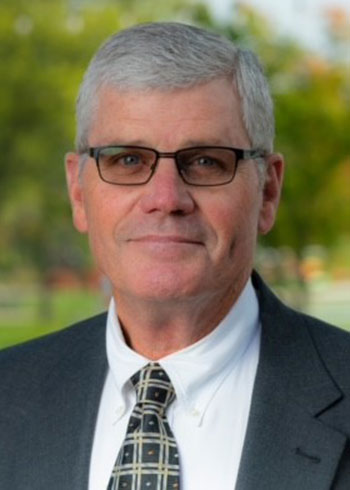
Aug. 7, 2024 – Receiving 72 claims over the past year, those administering the Wisconsin Lawyers’ Fund for Client Protection have been busy.
The fund provides a way for the legal profession to return money taken dishonestly from clients by their lawyer. Between July 1, 2023, and June 30, 2024, the Wisconsin Lawyers' Fund for Client Protection Committee approved 19 claims against 11 attorneys for $290,028.64.
For lawyers in Wisconsin, there is one unexpected way they may have a claim made against them: a lack of a succession plan when the attorney can no longer practice or passes away unexpectedly.
“I don’t think that many attorneys realize that the fund ends up being involved when there isn’t a plan when an attorney passes away,” said Pat Puyleart, committee chair.
Here’s more information about the fund and how to avoid a claim due to a lack of a succession plan.
More About the Fund for Client Protection

The Wisconsin Lawyers' Fund for Client Protection “was established by the Wisconsin Supreme Court to compensate clients for services paid for but that have not been rendered to the client's satisfaction for a variety of reasons,” said Pat Puyleart, committee chair.
The Wisconsin Lawyers' Fund for Client Protection is an important and vital way to restore faith in the legal system for clients who are victims of dishonest conduct by lawyers.
“The fund was established by the Wisconsin Supreme Court to compensate clients for services paid for but that have not been rendered to the client's satisfaction for a variety of reasons,” said Puyleart. “Compensation from the fund is made after other efforts to satisfy the client have been exhausted.”
The task of the Wisconsin Lawyers' Fund for Client Protection Committee is to pay back funds taken dishonestly from clients by their lawyer. Over the past fiscal year (2023-24), the committee approved $290,028.64 to 19 clients, victims of 11 Wisconsin lawyers.
This amount reflects the financial loss to these individuals by their attorney’s dishonest conduct. Dishonest conduct is defined by SCR 12.045 to include a willful act to embezzle, an intentional taking or conversion of money, property or other thing of value, or the failure to refund an unearned advanced fee.
The fund is administered by the State Bar of Wisconsin, per SCR 12. The Wisconsin Lawyers' Fund for Client Protection Committee has five lawyer members and two non-lawyer members.
Puyleart is one of two non-attorney committee members. He is a past member of the State Bar Board of Governors, where he has served 5 years. “I’m a retired businessman from Wausau who has served on a number of volunteer boards over the years. This experience has been among the more interesting ones,” he said.
His message to Wisconsin attorneys: “Lawyers should know that this committee takes the responsibility of administering this fund very seriously. Every claim is considered based on the claimant's application along with a thorough compilation of background information and case merits. Lawyers are asked to provide case details to the extent that they can.”
Planning Ahead Helps Your Clients and Your Practice
Of the 72 claims over the past year, 16 of them involved lawyers who died before representation was complete. Clients were unable to have their advanced fees or retainer payments returned to them.
 Shannon Green is communications writer for the State Bar of Wisconsin, Madison. She can be reached by email or by phone at (608) 250-6135.
Shannon Green is communications writer for the State Bar of Wisconsin, Madison. She can be reached by email or by phone at (608) 250-6135.
“Based on a number of claims I've reviewed involving attorneys who have either passed away or for other reasons are no longer able to provide the services they have committed to clients when fees are collected, it is critically important that attorneys have thorough succession plans in place,” Puyleart said. “While none of us embrace the thought of becoming incapacitated or passing away before services are completed, it unfortunately happens more often than you think.”
SCR 12 allows the committee to consider claims where an attorney has died and where an unearned advanced fee cannot be refunded. In some of these cases, the clients had their claims denied because they were unable to produce proof of payment to the attorney or a representation agreement. When an attorney passes away, particularly if they are a solo practitioner without staff or an office plan, their files are destroyed or inaccessible.
What can you do? Start with these two things:
provide your clients with a written agreement that identifies whether you work on a flat fee or an hourly basis, and provide receipts for cash payments; and
create a succession plan: The State Bar can help you do that.
How do you create a succession plan? Take these steps to get started:
If you have additional questions, complimentary and confidential ethics and practice management consultations are available to you as a State Bar member.
Compensating Victims of Lawyer Dishonest Conduct
Since 1981, more than $8 million has been returned to more than 1,036 victims of lawyer dishonest conduct in Wisconsin.
Each claim is individually investigated, and reimbursement decisions are made at the discretion of the committee, which meets three times per year. Some of the money is returned to the fund via court-ordered restitution or voluntary payments from the lawyers who have approved claims against them.
Wisconsin lawyers share in the efforts to make victims whole: the fee of $25 is assessed by the Wisconsin Supreme Court and collected by the State Bar of Wisconsin with annual dues statements. The amount of the assessments is determined by the committee each year by Supreme Court Rule.
Find out more about the Client Protection Fund through its website on Wisbar.org, by reading the FAQs about the fund. The Wisconsin Lawyer Assistance Program (WisLAP) – which offers free and confidential assistance – as well as Practice411 for practice management help.
The Details: Claims for 2023-24
Between July 1, 2023, and June 30, 2024, the Wisconsin Lawyers' Fund for Client Protection Committee approved 19 claims against 11 attorneys, amounting to reimbursements totaling $290,028.64. Note that one attorney paid the client directly, after the claim was approved by the committee, so we do not name the attorney here.
The approved claims were reimbursements primarily for unearned advanced fees against these attorneys:
Steven Sarbacker: $10,500 paid out for failure to refund an unearned advanced fee (5 claims)
Jair Alvarez: $7,000 paid out for failure to refund an unearned advanced fee (2 claims)
David Patton: $22,604.15 paid out for failure to refund an unearned advanced fee (3 claims)
Robert Malloy: $2,000 paid out for the amount determined by OLR as appropriate restitution
William Green: $2,150 paid out for failure to refund an unearned advanced fee (2 claims)
Kristin Lein: $150,000 paid out for theft from an estate
Kelsi Cottle: $6,500 paid out for failure to refund an unearned advanced fee
H. Craig Haukaas: $2,400 paid out for failure to refund an unearned advanced fee
Robert Menard: $83,827.49 paid out for failure to refund an unearned advanced fee
Joseph Seifert: $1,547 paid out for failure to refund an unearned advanced fee
